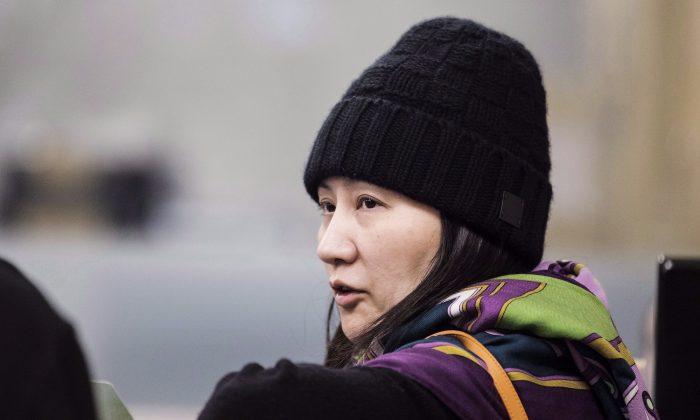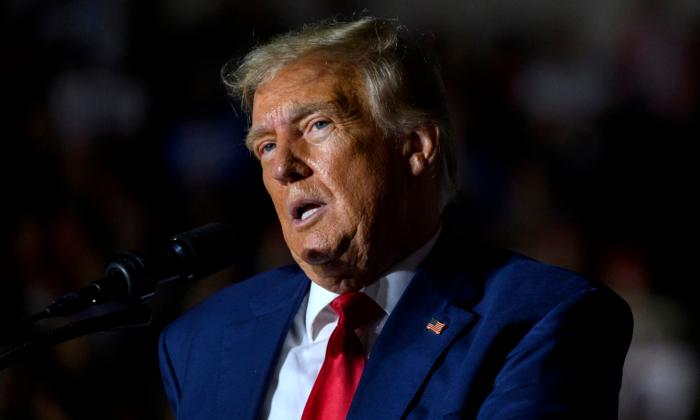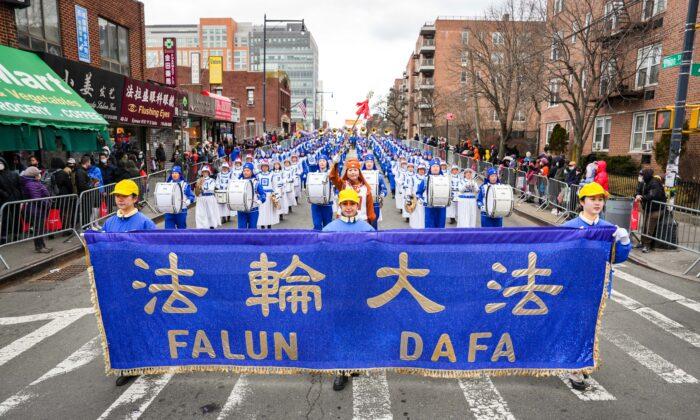The United States will move to formally seek the extradition of Huawei chief financial officer Meng Wanzhou from Canada, the Globe and Mail reported.
In an interview with the outlet published on Jan. 21, Canada’s ambassador to the United States, David MacNaughton, said the United States told Canada it will proceed with a formal extradition request. However, he did not say when the request would be made.
Under Canadian law, the United States 60 days from the date of Meng’s arrest on Dec. 1 to file an extradition request—that is, by Jan. 30.
U.S. prosecutors accuse Meng, the daughter of Huawei founder and CEO Ren Zhengfei, of violating U.S. sanctions against Iran by misleading banks about the company’s dealings in the Middle Eastern country. She was released on bail on Dec. 11 and is due to return to court in Vancouver on Feb. 6.
Tensions between China and Canada have been high since the arrest. The Chinese regime immediately warned Canada of “grave consequences” if Meng was not released. In the following weeks, two Canadian citizens were detained in China, while one Canadian was sentenced to death in a re-trial of his drug-smuggling case.
While Beijing has not linked the cases with Meng’s arrest, many Western observers have dubbed China’s actions as “hostage diplomacy.”
Huawei, the world’s biggest maker of telecommunications equipment, said it had no comment on ongoing legal proceedings when contacted by Reuters on Jan. 22. A U.S. Justice Department spokesman said, “We will comment through our filings.”
China’s Foreign Ministry on Jan. 22 reiterated calls for Meng’s immediate release and said her case clearly was “not a regular judicial case.”
Anyone with fair judgment would determine that Canada made a “serious mistake” in this matter, ministry spokeswoman Hua Chunying told a regular news briefing.
Meanwhile, Canada has maintained that Meng’s case is governed by the rule of law, and that it has been following its international treaty obligations.
Hua added that China “strongly urges” the United States to correct its “mistake,” cancel the arrest order for Meng, and not make a formal extradition request.
Asked if China would retaliate against the United States if Meng is extradited, Hua said, “China will, of course, respond to U.S. actions.” She did not elaborate.
The U.S. and China are currently in a temporary trade truce and have until March 1 to reach an agreement to prevent a planned tariff increase from 10 to 25 percent on $200 billion worth of Chinese goods. China’s vice-premier, Liu He, is set to meet with US trade representative Robert Lighthizer, in Washington D.C. on January 30 and 31.
Calls to Release Detained Canadians
On Jan. 21, nearly 150 former diplomats and scholars from around the world sent an open letter to Chinese leader Xi Jinping urging the release of two Canadians, Michael Kovrig and Michael Spavor, detained in China and accused of “endangering national security.”“We, the undersigned scholars, former diplomats, and others with an interest in understanding China and building bridges are deeply concerned about the recent detentions,” the signatories said in the letter. “We request that you immediately release Mr. Kovrig and Mr. Spavor, so that they may be reunited with their families.”
The signatories–which include leading China scholars and two former foreign ministers— warned China’s detention of Kovrig and Spavor will only make China and the rest of the world “worse off,” and show the world “constructive work is unwelcome and even risky in China.”
The Chinese regime reacted harshly to the letter, saying it amounted to interfering with China’s sovereignty.
Hua in the same news briefing accused the letter’s signatories of “deliberately attempting to arouse fear.”
Canadian Prime Minister Justin Trudeau previously said China was arbitrarily using the death penalty and called on world leaders to raise concerns about the detained Canadians.






Friends Read Free